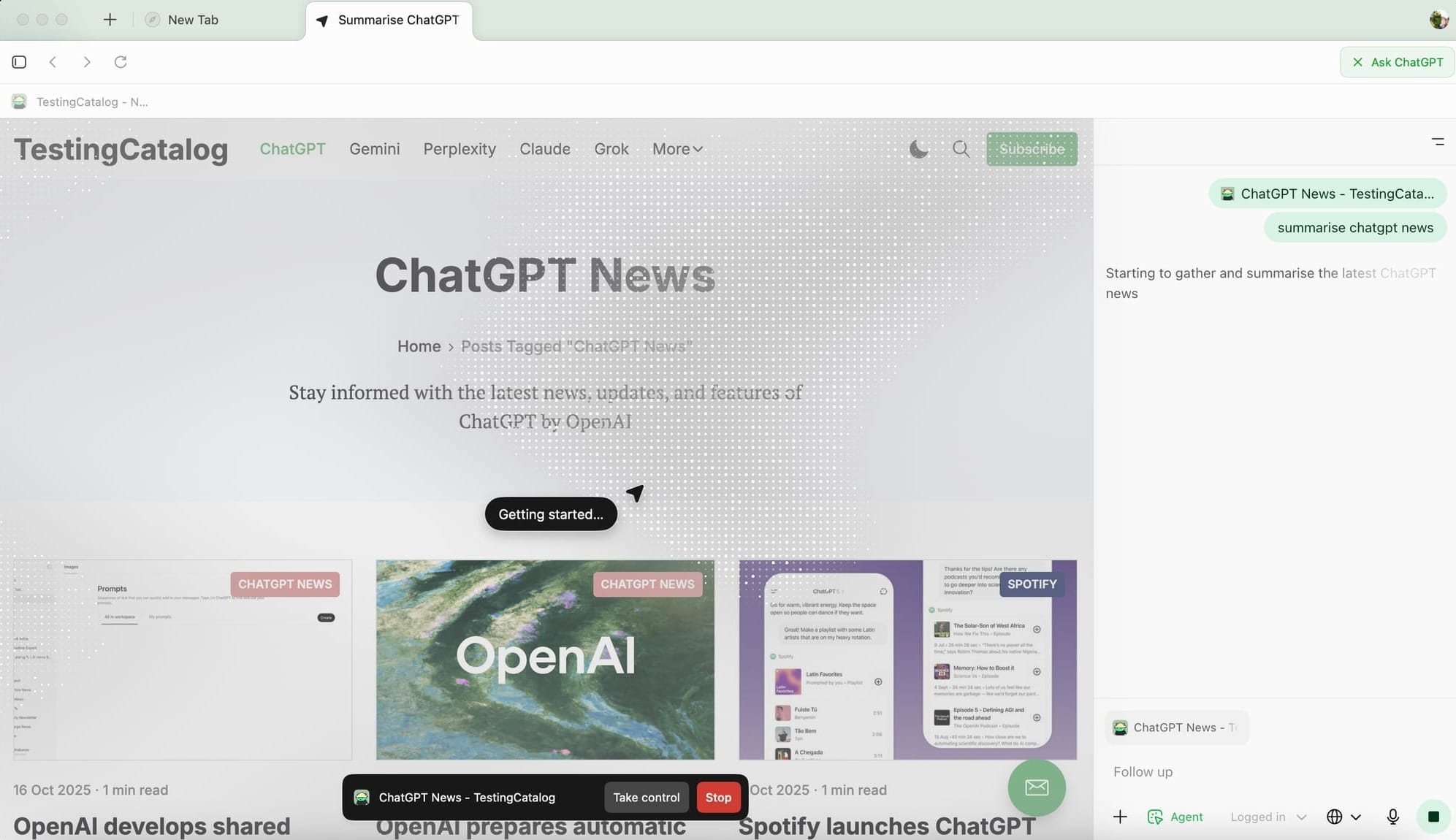OpenAI Unveils ChatGPT Atlas: 5 Breakthrough Features (2025)
Discover ChatGPT Atlas, OpenAI's revolutionary AI-powered browser, transforming web interactions with seamless AI integration and smart features.

OpenAI Launches ChatGPT Atlas: An AI-Powered Browser Set to Transform Web Experience
OpenAI has officially launched ChatGPT Atlas, an innovative AI-powered web browser that integrates ChatGPT directly into the browsing experience. Released globally on macOS on October 21, 2025, ChatGPT Atlas is available to Free, Plus, Pro, Go, and Business users (beta) and promises to redefine how users interact with the web by combining browsing, AI assistance, and memory features seamlessly.
What is ChatGPT Atlas?
ChatGPT Atlas is not just a browser but an AI assistant embedded directly into the web experience. It allows users to access ChatGPT’s capabilities within any webpage without switching tabs or copying and pasting information. This integration provides real-time help such as summarizing content, answering questions, writing or editing text inline, and performing tasks contextual to the webpage.
Key features include:
- New Tab Page: Users can ask ChatGPT questions or enter URLs for faster, more useful results displayed in a single, consolidated interface.
- Smarter Searches: Search results are categorized into tabs such as links, images, videos, and news, allowing users to explore specific content types more efficiently.
- Ask ChatGPT Sidebar: A persistent sidebar that opens on any page to analyze, summarize, or assist with tasks without interrupting the browsing flow.
- Inline Writing Help: ChatGPT can be invoked directly within form fields or documents to help write or edit content, enhancing productivity.
- Browser Memories: When enabled, ChatGPT remembers key details from browsing sessions to provide smarter, personalized responses. This memory is private and controllable by users, with options to archive or delete saved information. Users can also toggle which websites ChatGPT can access for memory purposes.
Launch and Availability
ChatGPT Atlas launched first for macOS users worldwide, with Windows, iOS, and Android versions expected soon. This rollout reflects OpenAI’s ambition to make AI assistance an integral part of everyday browsing across multiple platforms. The browser supports importing bookmarks, passwords, and browsing history from other browsers, facilitating a smooth transition for users.
The launch was officially announced via a livestream event featuring OpenAI CEO Sam Altman and other key team members, highlighting the company’s vision for ChatGPT Atlas as a "super-assistant" that understands user context and helps accomplish goals directly within the browser environment.
How ChatGPT Atlas Challenges the Browser and Search Market
By integrating ChatGPT at the browser level, OpenAI is positioning ChatGPT Atlas as a direct competitor to established browsers such as Google Chrome, Microsoft Edge, and Apple's Safari, as well as to traditional search engines. The ability to receive AI assistance on any webpage without leaving it offers a fundamentally different browsing experience focused on productivity and intelligence rather than just navigation.
This innovation prompted market reactions, including a noted dip in Alphabet’s (Google) shares, reflecting investor concerns about OpenAI’s potential disruption in search and browsing dominance.
User Experience and Early Feedback
Early testers, including college student Yogya Kalra, praised ChatGPT Atlas for enhancing learning and productivity by allowing real-time AI assistance with course material and web content without constantly switching windows. This reflects the browser’s potential to become an essential tool for students, researchers, developers, and professionals who rely heavily on web-based workflows.
Future Roadmap and Developer Opportunities
OpenAI plans to continually improve ChatGPT Atlas with features like:
- Multi-profile support to cater to users juggling various browsing personas.
- Enhanced developer tools to facilitate app integrations.
- Improved discoverability of apps within the browser through an Apps SDK.
- Collaboration with website owners via ARIA tags to optimize how ChatGPT interacts with their content.
These planned enhancements indicate OpenAI’s commitment to making ChatGPT Atlas not only a browser but also a platform for AI-enhanced web applications.
Context and Implications
The launch of ChatGPT Atlas marks a significant step in the evolution of browsing technology. By embedding advanced AI directly into the browser, OpenAI is pushing the boundaries of what a browser can do, shifting it from a passive tool to an active assistant capable of understanding and anticipating user needs.
This integration could reshape user expectations for web navigation, content creation, and information retrieval. It also raises questions about data privacy and AI transparency, which OpenAI addresses through user-controlled memory settings.
For the tech industry, ChatGPT Atlas challenges the hegemony of existing browsers and search engines, potentially accelerating the adoption of AI-centric interfaces. If successful, it could redefine how users interact with the internet, making AI assistance a native feature of everyday digital life.
OpenAI’s ChatGPT Atlas is now available for download on macOS at chatgpt.com/atlas, with wider platform support expected soon, inviting users to experience the future of AI-assisted browsing today.



